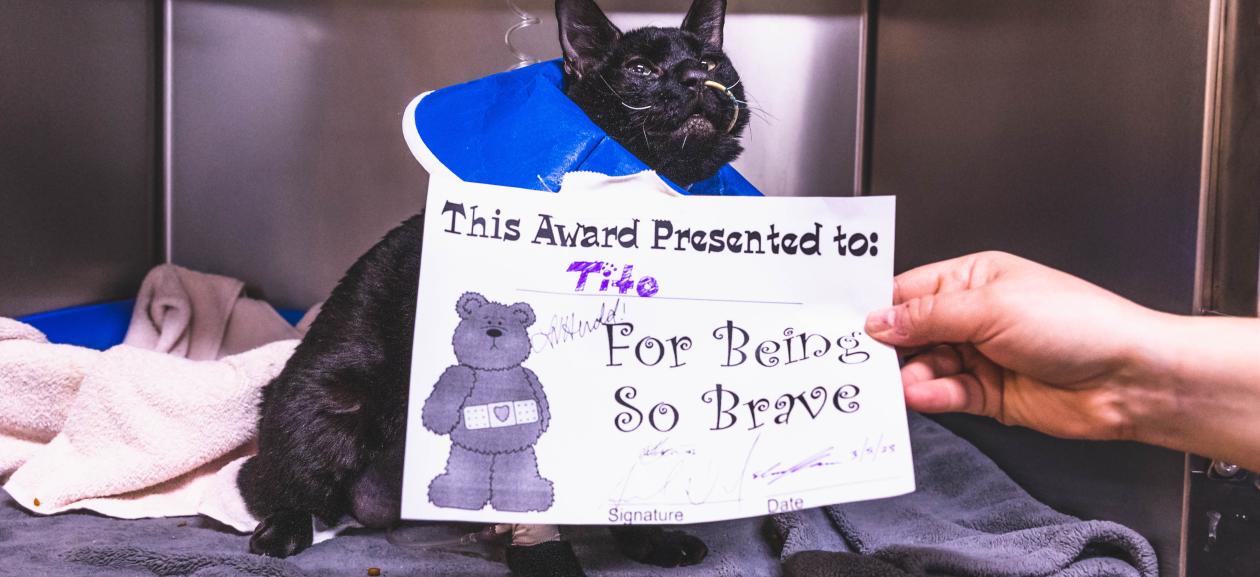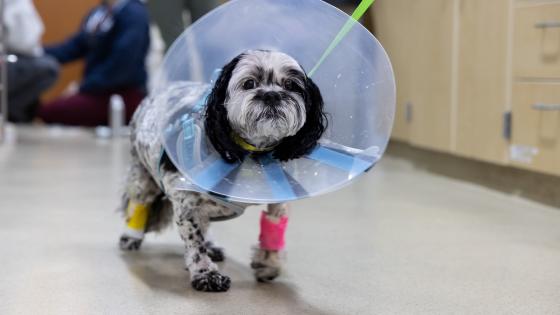
Is My Cat Sick? A Guide for Cat Owners
As loving pet owners, it's important for us to be attuned to our cat's well-being. Cats, known for their independence, can be masters at hiding when they're sick. However, they do exhibit subtle signs that can indicate something may not be quite right.
Recognizing these signs early can help you get your cat the veterinary care they need, and ensure your feline companion's health and happiness. So, how can you tell when your cat is sick and needs to see a veterinarian?
Changes in Appetite
One of the first indicators of illness in cats is a change in their eating habits. If your cat suddenly loses interest in food or displays a significant increase in appetite, it may be cause for concern. A decreased appetite could be a sign of dental issues, gastrointestinal problems, or systemic diseases, while increased hunger may be associated with hormonal imbalances or metabolic disorders.
Weight Fluctuations
Monitoring your cat's weight is essential. Sudden weight loss or gain can be a red flag for various underlying health issues. A cat losing weight without any changes in diet or activity level could be suffering from conditions such as hyperthyroidism, diabetes, or kidney disease. Conversely, unexplained weight gain could be indicative of fluid retention, hormonal imbalances, or obesity-related complications.
Changes in Litter Box Habits
The litter box can provide valuable insights into your cat's health. Frequent urination, straining to urinate, blood in the urine, or going outside the litter box altogether can be signs of urinary tract infections, bladder stones, or kidney problems. Similarly, changes in bowel movements, including diarrhea, constipation, or blood in the stool, may indicate gastrointestinal issues or infections.
Changes in Behavior
Cats are creatures of habit, and any significant alterations in their behavior can indicate that they are sick. Look out for unusual lethargy, excessive sleep, or a sudden decrease in activity levels. Sick cats may withdraw and hide from you, although this does depend on the personality of the individual cat. Conversely, increased agitation, restlessness, or irritability may also be signs of discomfort or pain. Changes in grooming habits, such as excessive grooming or neglecting grooming altogether, can also be indications of an underlying health issue.
Respiratory Issues
Pay attention to your cat's breathing patterns. If you notice wheezing, coughing, or any difficulty in breathing, it could signify respiratory problems or even heart disease. Rapid or shallow breathing may indicate stress, pain, or respiratory distress. Additionally, any nasal discharge, especially if it's discolored or accompanied by sneezing, warrants veterinary attention.
Vomiting and/or Diarrhea
Occasional vomiting or mild diarrhea can happen to any cat, but persistent or severe episodes can be problematic. Frequent vomiting, especially if it contains blood, or diarrhea lasting more than a day can lead to dehydration and nutrient deficiencies. These symptoms could be caused by various factors, including dietary indiscretion, infections, allergies, or more serious conditions.
Changes in Coat and Skin
A cat's coat and skin can reflect their overall health. Pay attention to excessive hair loss, dry or flaky skin, lesions, rashes, or signs of irritation. These symptoms may be indicative of allergies, parasites, dermatitis, or underlying systemic issues that require veterinary attention.
As cat owners, it's crucial to be proactive in monitoring our feline companions for any signs of illness. Keeping a eye out for these signs and getting prompt veterinary care can often prevent a minor issue from escalating into something more.
Recent Posts
Marijuana Toxicity in Pets: What You Need to Know
As availability of marijuana increases in the Portland area since legalization, so have the number of marijuana toxicity cases treated at DoveLewis. Our doctors warn pet owners of the potential risks to their dogs and cats if marijuana is ingested in any form.
How to Build a Pet First Aid Kit
Every pet owner should have a pet first aid kit handy in case of an emergency. If you need to put one together, we’ve got you covered!




